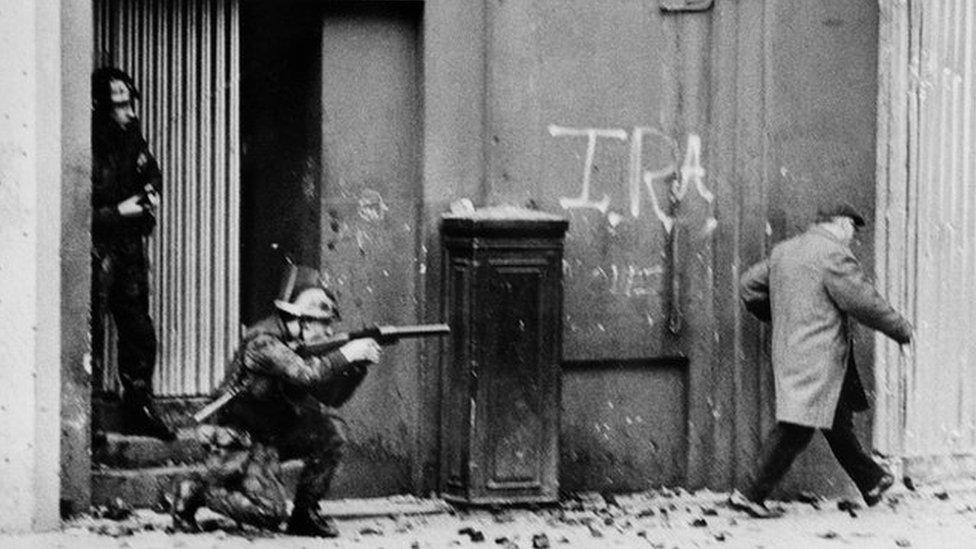Troubles pensions: Victims 'outraged' over dispute over funding
- Published
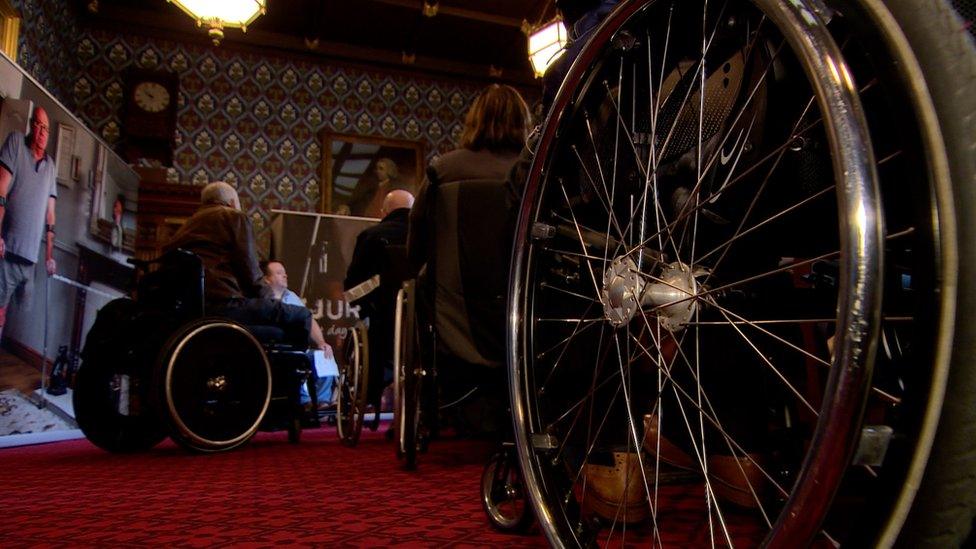
Victims' payments were approved by Westminster in January 2020
Troubles victims are "outraged" by an ongoing row over who should fund a victims' payment scheme, a group which represents them has said.
Alan McBride from Wave Trauma Centre said the NI Executive and UK government had treated victims "disgracefully".
On Monday, Stormont's finance minister said it was up to the UK government "to provide the necessary funding".
But the UK government has insisted the executive is responsible for funding the scheme from its block grant.
Mr Murphy said the UK government was responsible as the legislation was approved at Westminster.
Mr McBride, whose wife Sharon was murdered in the Shankill bombing in Belfast in 1993, said: "This is an absolute disgrace the way these people have been treated by both the Northern Ireland Assembly and also the British government."
He told the BBC's Good Morning Ulster there had been a "long long road of delay and deny" and the scheme "has to happen, it's the law".
Mr McBride said the legislation is "clear" that the executive is responsible for the costs.
However, he added: "If there's going to be a black hole in their [the executive's] finances because of other things then the British government probably needs to cough up for some of that".
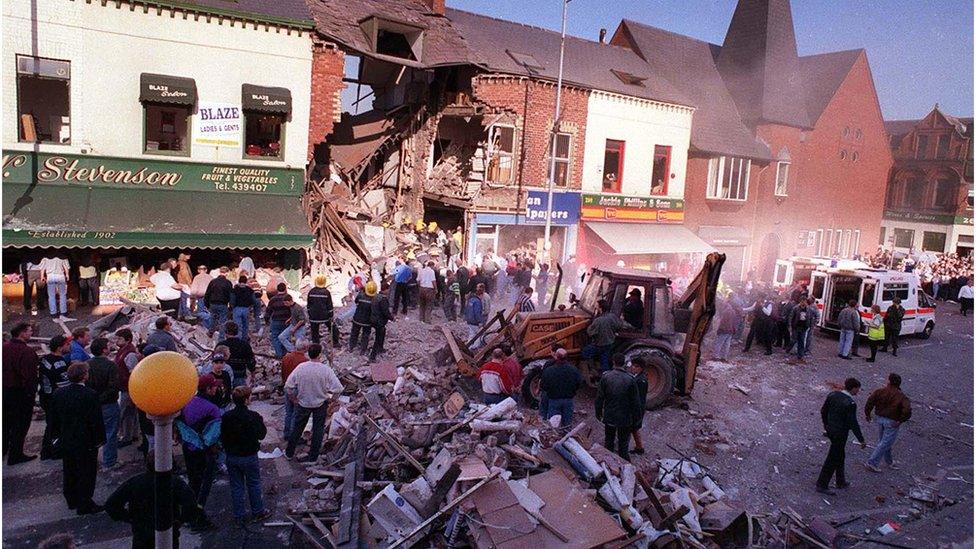
Nine people and one of the IRA bombers were killed in the Shankill bombing in Belfast in October 1993
Applications for the process are expected to open in March.
The scheme has previously been estimated to cost up to £800m.
In August, Stormont's Department of Justice was designated to administer the compensation scheme.
It followed a court ruling that the Executive Office (TEO) had acted unlawfully in delaying its introduction after legislation had been approved by Westminster in January 2020.
Mr Justice McAlinden said TEO was "deliberately stymieing" the scheme in part to pressure the government into funding it.
Announcing a draft Stormont budget on Monday, Mr Murphy did not set aside funding for the payments, only the administrative cost of the pensions.
He told the assembly: "The executive is fully committed to delivering these payments and in line with the British government's own statement of funding policy, it is the responsibility of the British government to provide the necessary funding."
Mr Murphy added he hoped Northern Ireland Secretary Brandon Lewis would meet ministers to discuss how the "significant costs involved" would be funded.

'Not a good look for either government'

This is not a good look for Stormont or Westminster
Both sides are playing hardball as Troubles victims continue to suffer through no fault of their own
But victims will get paid regardless of who picks up the bill - legally they have to.
We might find London covering the cost for pensions to victims in Great Britain and Stormont looking after those in Northern Ireland
But we may have to wait for a compromise.

The block grant is the amount of money given to the executive by the Treasury each year.
A UK government spokesperson said: "The [NI] secretary of state has been consistent in his support for the Victims Payments Scheme.
"He has always been clear that the devolved funding settlement means that the executive is funded through the block grant, together with its own revenue raising capabilities to deliver its statutory responsibilities, including this scheme."
They added that the spending review for 2021-2022 "provides a further increase in funding for the executive by more than 900 million".
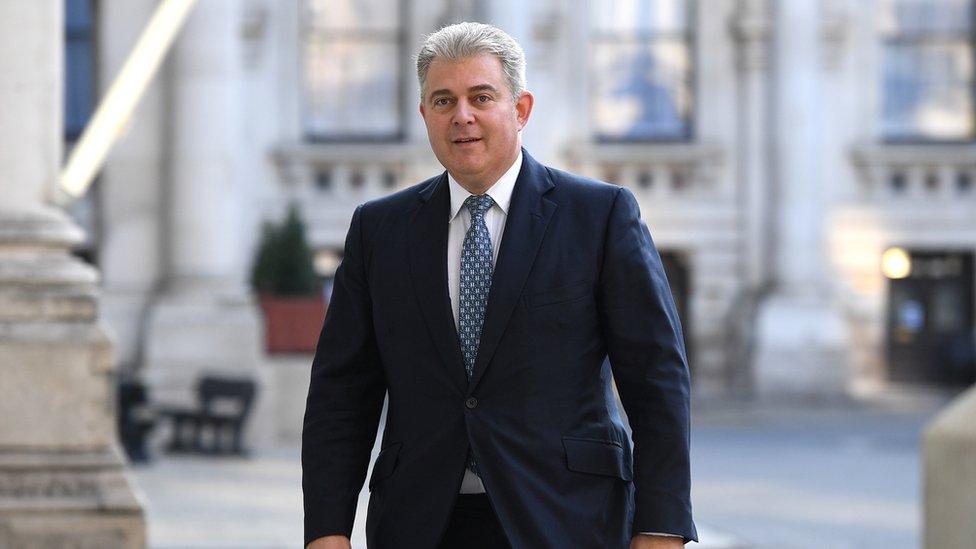
A UK government spokesperson said NI Secretary Brandon Lewis has consistently supported the payment scheme
In its statement, the UK government spokesperson said "unprecedented levels of funding" had already been provided to the executive this year, including billions of pounds for the New Decade, New Approach package, as well as support for the coronavirus pandemic.
On Tuesday, Justice Minister Naomi Long said finding the money to pay for the troubles pension is not beyond the capability of the executive and the UK government.
She told the assembly's justice committee that the scheme remains on track to open to applications in March.
"I want to know if people apply there is money there to pay?" she said.
What is the Victims' Payment Scheme?
The legislation came on to the statute book in January 2020., external To qualify, you have to have an injury which is severe and permanent and caused by no fault of your own.
This can be physical injury, such as a loss of limbs, or psychological, caused by being present at a bombing, for example.
The scheme covers violence related to the Northern Ireland Troubles between 1966 and 2010, including incidents in Great Britain and Europe. Non-UK residents injured outside the UK cannot apply - such as victims of the Dublin and Monaghan bombings carried out by loyalists in 1974.
People will get between £2,000 and £10,000 a year for the rest of their lives. Upon their death, a spouse or carer, will get the payments for a further 10 years. The scheme is a recognition that criminal injuries awards from decades ago were largely inadequate.
- Published24 August 2020

- Published25 August 2020
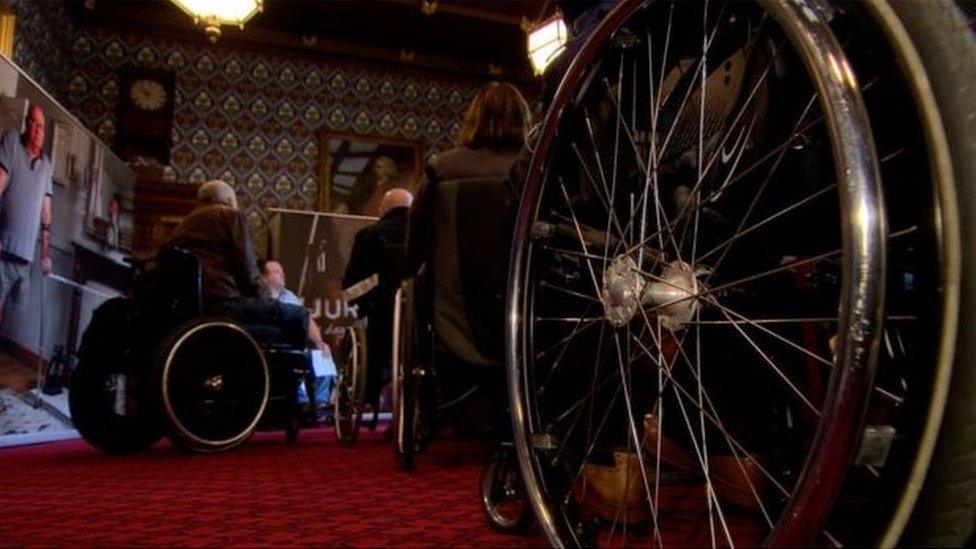
- Published29 August 2020
